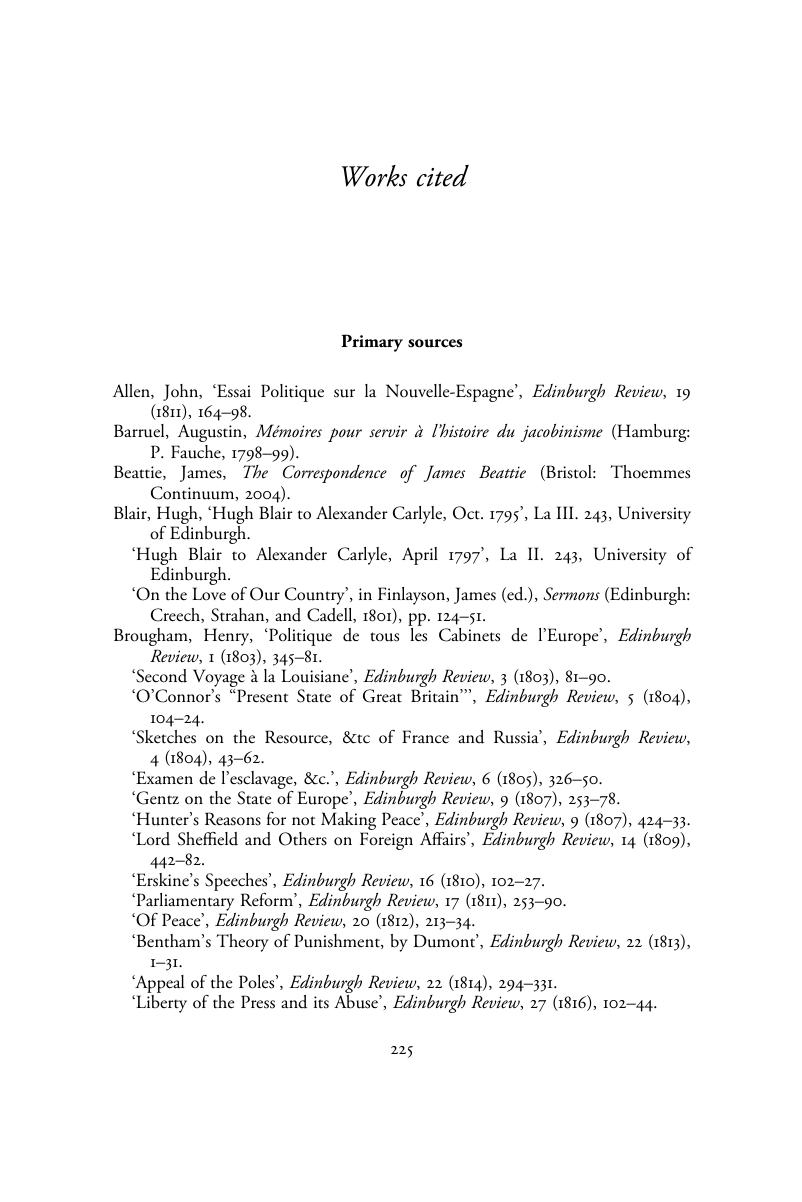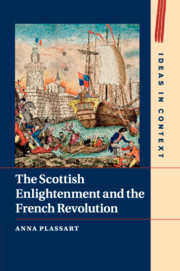Book contents
- The Scottish Enlightenment and the French Revolution
- Ideas in Context
- The Scottish Enlightenment and the French Revolution
- Copyright page
- Contents
- Book part
- Introduction
- Part I The Burke-Paine debate and Scotland's science of man
- Part II The 1790s
- Part III 1802–1815
- Conclusion
- Works cited
- Index
- Series page
- References
Works cited
Published online by Cambridge University Press: 05 May 2015
- The Scottish Enlightenment and the French Revolution
- Ideas in Context
- The Scottish Enlightenment and the French Revolution
- Copyright page
- Contents
- Book part
- Introduction
- Part I The Burke-Paine debate and Scotland's science of man
- Part II The 1790s
- Part III 1802–1815
- Conclusion
- Works cited
- Index
- Series page
- References
Summary

- Type
- Chapter
- Information
- The Scottish Enlightenment and the French Revolution , pp. 225 - 241Publisher: Cambridge University PressPrint publication year: 2015



